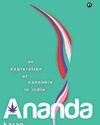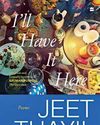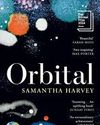
AS ANYONE WHO'S sat through English class can tell you, this globally unifying language is baffling. And yet, somehow, there are currently around 1,71,146 words A in use in the English language, according to the Oxford English Dictionary. Granted, many are of the a, the but variety. Still, few of us know how the words we utter were derived or what they really mean. What follows is a hodgepodge (there's a good word!) of fun facts about the language that gave us Shakespeare, Hemingway, Angelou, and those dolts on Twitter.
THE STORY BEHIND THE WORD
Did you know that the word muscle comes from the Latin musculus, which means 'little mouse'? Apparently, the ancient Romans thought that the movement of a muscle, especially a flexed bicep, looked as if a mouse were running under the skin. Now there's a fun visual. And that's not even the weirdest example of a word with odd, ancient origins creeping-like mice under our skin-into modern English. Here are a few of our favourites.
QUARANTINE The first quarantine was in Venice, Italy, while bubonic plague was ravaging the mainland. To help curb the spread of infection, visiting ships had to spend 40 days at anchor before entering the city. (Worst. Cruise. Ever!!!) The word quarantine comes from the Italian phrase quaranta giorni: literally, '40 days!
GALAXY Thousands of years ago, ancient Greek stargazers looked up at the sky and saw a white river of light arcing overhead. Their reaction? "I could really go for some cookies right now." The Greeks named that broad band of stars galaxias-which stems from the word gála, meaning 'milk! To this day, we call our galaxy the Milky Way.
Denne historien er fra February 2023-utgaven av Reader's Digest India.
Start din 7-dagers gratis prøveperiode på Magzter GOLD for å få tilgang til tusenvis av utvalgte premiumhistorier og 9000+ magasiner og aviser.
Allerede abonnent ? Logg på
Denne historien er fra February 2023-utgaven av Reader's Digest India.
Start din 7-dagers gratis prøveperiode på Magzter GOLD for å få tilgang til tusenvis av utvalgte premiumhistorier og 9000+ magasiner og aviser.
Allerede abonnent? Logg på

ME & MY SHELF
Siddharth Kapila is a lawyer turned writer whose writing has focussed on issues surrounding Hinduism. His debut book, Tripping Down the Ganga: A Son's Exploration of Faith (Speaking Tiger) traces his seven-year-long journey along India's holiest river and his explorations into the nature of faith among believers and skeptics alike.

EMBEDDED FROM NPR
For all its flaws and shortcomings, some of which have come under the spotlight in recent years, NPR makes some of the best hardcore journalistic podcasts ever.

ANURAG MINUS VERMA PODCAST
Interview podcasts live and die not just on the strengths of the interviewer but also the range of participating guests.

WE'RE NOT KIDDING WITH MEHDI & FRIENDS
Since his exit from MSNBC, star anchor and journalist Mehdi Hasan has gone on to found Zeteo, an all-new media startup focussing on both news and analysis.

Ananda: An Exploration of Cannabis in India by Karan Madhok (Aleph)
Karan Madhok's Ananda is a lively, three-dimensional exploration of India's past and present relationship with cannabis.

I'll Have it Here: Poems by Jeet Thayil, (Fourth Estate)
For over three decades now, Jeet Thayil has been one of India's pre-eminent Englishlanguage poets.

Orbital by Samantha Harvey (Penguin Random House India)
Samantha Harvey became the latest winner of the Booker Prize last month for Orbital, a short, sharp shock of a novel about a group of astronauts aboard the International Space Station for a long-term mission.

She Defied All the Odds
When doctors told the McCoombes that spina bifida would severely limit their daughter's life, they refused to listen. So did the little girl

DO YOU DARE?
Two Danish businesswomen want us to start eating insects. It's good for the environment, but can consumers get over the yuck factor?

Searching for Santa Claus
Santa lives at the North Pole, right? Don't say that to the people of Rovaniemi in northern Finland